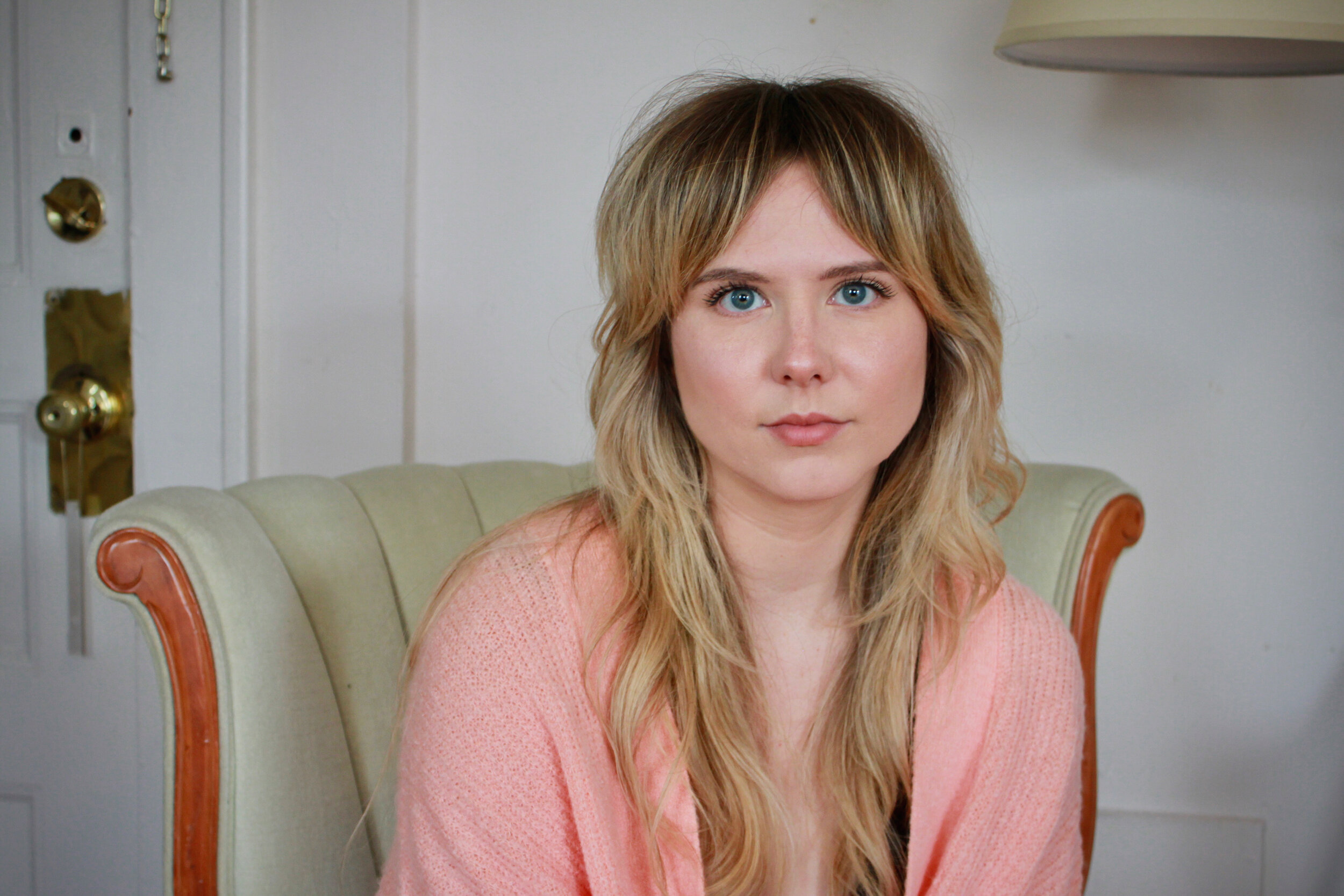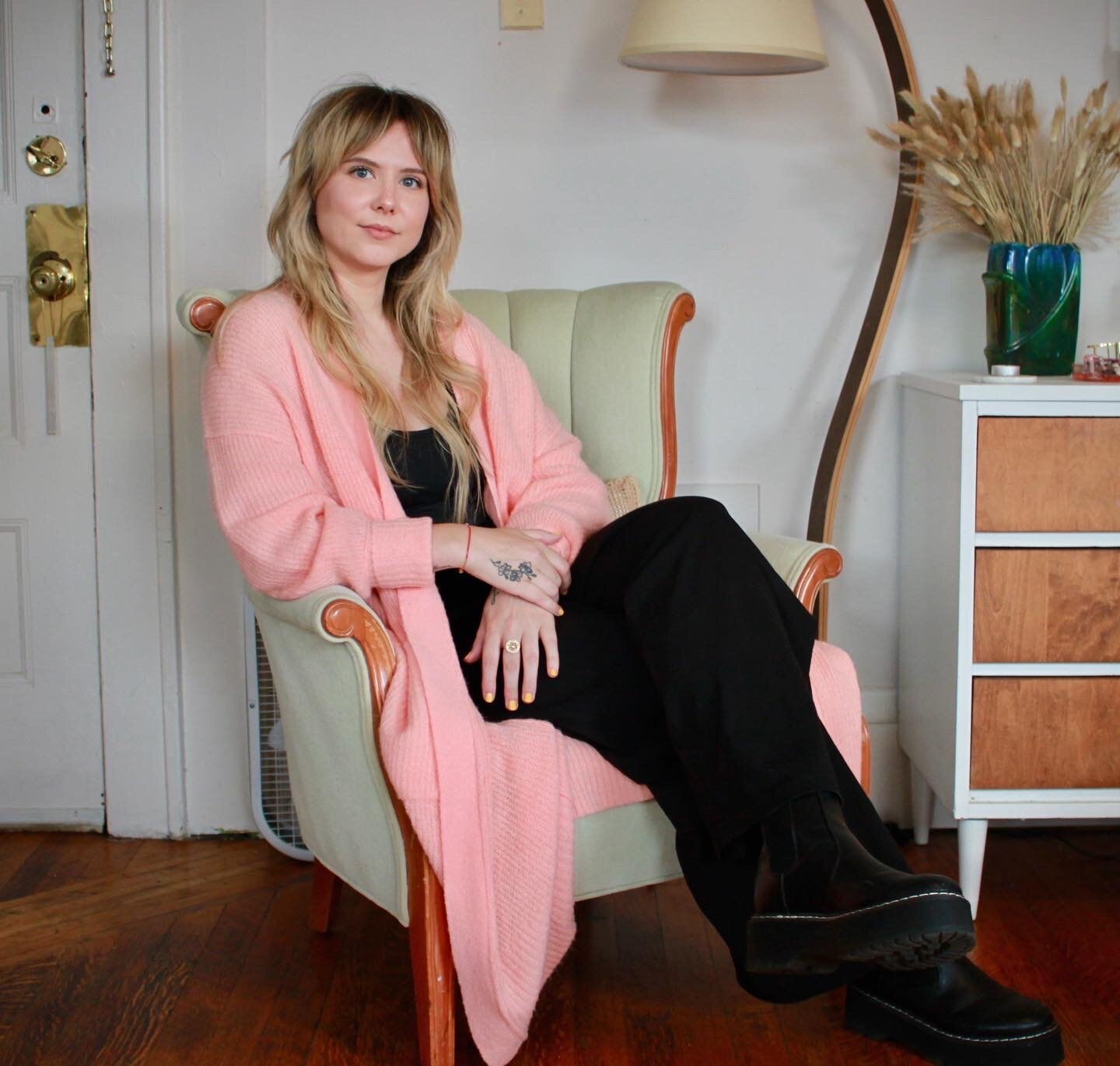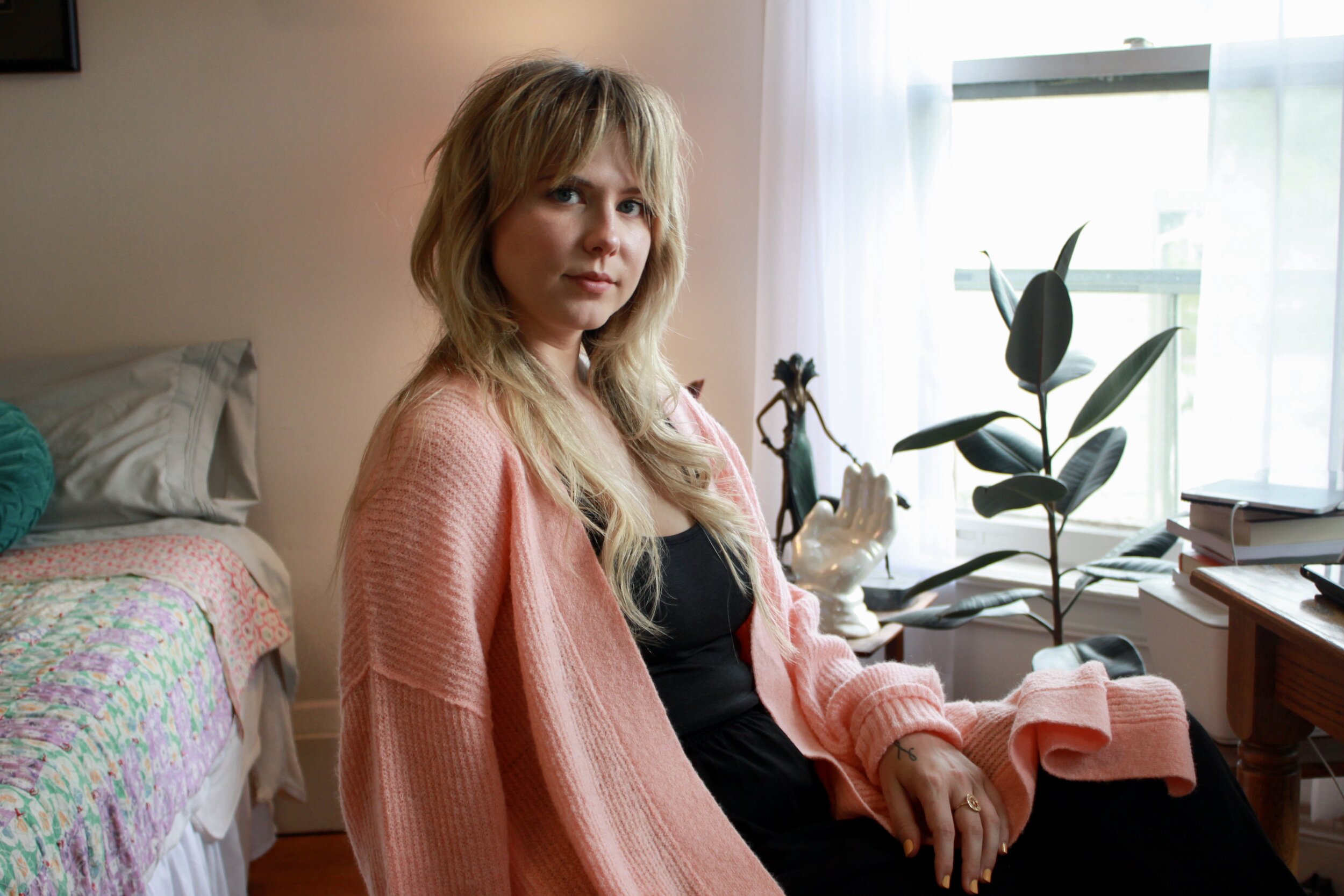Laura Jensen
“I believe people with Borderline Personality Disorder are meant to go on to be healers. It’s not a coincidence that they’ve always felt like they never belonged and why life has been so hard for them — it’s because they were put here to make a meaningful difference in the world. They just need to wake up first, and sometimes that process isn’t always so kind.”
NAMI: Have you ever had any mental health struggles? Do you live with a diagnosis?
LJ: I believe I have struggled with my mental health for long before I even knew what it was. I can think back to having intense feelings of anxiety from a very young age. I’ve since gone through a few phases and diagnoses, but was finally diagnosed with Borderline Personality Disorder in 2019, which resonated with me greatly. I don’t really consider myself to live with BPD anymore, as my triggers are far and few [between] at this point, and I’ve created a life for myself that almost completely prevents me from relapsing. However, I am very cautious of it and would take even the faintest hint of a BPD episode very seriously.
NAMI: How have you healed and grown from your experiences?
LJ: I have definitely healed and grown from my experience. I considered myself in recovery for about a year (basically all of 2020). I was unemployed and doing my yoga teacher training online, so healing was given almost 100% of my attention, and I was able to show progress rather quickly. I don’t know if I can say I am “healed” or if I ever will be, as it is a never-ending process, and there will always be more work to do. But I’m definitely out of the thick of it. Recovering to me meant healing my past. I had been living with a lot of shame and was determined to move that feeling out of my body. I had a lot of reprogramming to do, and a lot of shadow to learn how to love and accept. I literally made a list of every incident large and small (even the embarrassing ones from middle school) that has ever caused me pain, shame, or fear, and I knocked them out one by one. I just kept asking myself “why?”, until I got to the bottom of it where I was able to find compassion and love for myself, my parents, and anyone else who is a part of my story. We are literally all just trying to be loved.
NAMI: How do you protect your mental health?
I got to a point where I just decided that I was going to dedicate my life to healing. I found great success in deepening my spirituality. First came yoga, then reiki, and I’ve since tried many other holistic healing modalities — some basic, some a little “out there”. I love it all. It just makes sense to me. Whatever I can do or learn to deepen my relationship with the universe and myself, I’m all for it. And of course, having firm boundaries and spending plenty of time alone is especially important to protect my energy and my mental health.
LJ: How did you react and process your diagnosis?
On the one hand, I was so relieved to have an answer, but on the other hand, I was petrified for myself and my future. I for sure thought I was going to die by suicide. What I read about BPD online was very challenging for me. Even just seeing how much of the information out there was specifically for the loved ones of a person with BPD made me feel like I was a burden to everyone in my life, and that I was never going to be able to have healthy relationships. I mean, I get it — it’s important for loved ones to know what is going on, but it made me feel like a monster.
NAMI: Is your view of BPD different now versus when you were first diagnosed?
LJ: 1,000%. I view people with BPD as empaths who have gone down the wrong path. As highly sensitive people, they absorbed their conditioning like a sponge and never stopped to question who they really were, or why they were here. So, the universe throws them sign after sign to get them to wake up, but they refuse because they only know one way of how to be loved, and it sabotages them. I believe people with BPD are meant to go on to be healers. It’s not a coincidence that they’ve always felt like they never belonged and why life has been so hard for them — it’s because they were put here to make a meaningful difference in the world. They just need to wake up first, and sometimes that process isn’t always so kind.
NAMI: What do you think clinicians and people in general need to know about BPD and the individuals who live with it (i.e. stereotypes vs. reality)?
LJ: That we’re not dangerous. We’re kindhearted people (maybe even more so than others) who’ve been hurt. We’re not hopeless, and recovery is possible. We just want to be understood and feel safe in the world.
NAMI: Some mental health advocates argue that the term “personality disorder” should be done away with. Do you have any opinions on that?
LJ: It doesn’t bother me personally, but I get why it is misleading. Emotional Dysregulation Disorder sums it up far better.
NAMI: It’s been said that individuals who complete DBT (Dialectical Behavioral Therapy) can go into complete remission from BPD. Have you found relief from DBT?
LJ: Yeah. DBT incorporates some Buddhist concepts like mindfulness. I read an article once that said personality disorders are a spiritual crisis, which makes a lot of sense to me. I quickly switched from DBT to metaphysical healing, but there is a lot of overlap.
NAMI: Do you feel like you have enough support in our community?
LJ: No, not even close. Doing this interview now is pretty damn cool, and I’m very thankful, but the lack of support I had during my darker times was excruciating. I think this part alone is why so many people with BPD lose their lives to suicide — the isolation kills you internally first. It’s tricky, because even in my experience, I pushed away anyone who tried to help me, mainly because they would often come at me from a place of anger, frustration, or judgment… never love. So yeah, the lack of awareness on BPD is definitely part of the problem. If people knew the signs of what one being triggered were, as well as how to properly handle it, then we’d be able to prevent a lot of splitting, a lot of isolating, and trauma to both parties. Awareness is one thing, but ultimately, healing our trauma before raising our children is probably the more necessary form of BPD prevention.



